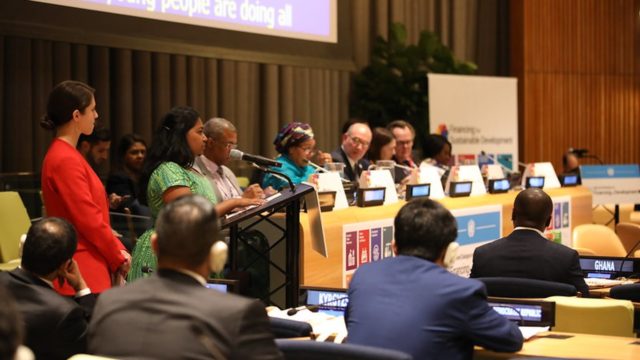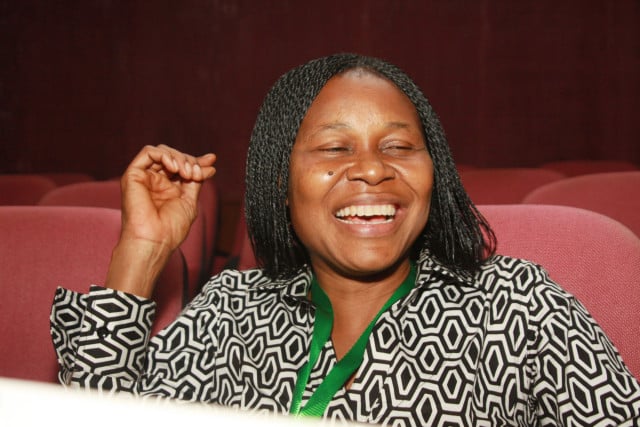In recent weeks, the climate change conference has been on the lips of policymakers, scientists, and people around the world. It has been the most prominent discussion such that it would be hard to miss seeing a thing or two about it wherever you turn.
But what exactly is COP26 — and how does it relate to Nigeria?
In this explainer, TheCable looks at the issues surrounding the conference, providing a bit of background as world leaders gather in Glasgow, Scotland, United Kingdom.
WHAT IS COP?
Advertisement
In November 1988, the Intergovernmental Panel on Climate Change (IPCC) was established, to among other things, provide scientific insights into ways of managing the risk of extreme events and disasters.
Subsequently, in November 1990, IPCC released its first assessment report. In the report, IPCC stated that “emissions resulting from human activities are substantially increasing the atmospheric concentrations of greenhouse gases”.
The report led to an immediate call for a global treaty by international organisations. A month after the report was published, the UN General Assembly established the Intergovernmental Negotiating Committee (INC) for a framework convention on climate change.
Advertisement
But in 1992, countries entered into an international treaty, which then became the United Nations Framework Convention on Climate Change (UNFCCC), a framework for international cooperation to combat climate change by limiting increasing average global temperature.
By March 21, 1994, the UNFCCC officially came into force, garnering a near-universal membership of 197 countries. The countries involved are known as ‘Parties’. These Parties meet annually to discuss and negotiate multilateral responses to climate change.
The summit where they meet is known as the Conference of the Parties — COP.
WHAT IS COP26?
Advertisement
After the UNFCCC came into force in 1994, Parties have been meeting annually since 1995. The first COP was in April 1995 in Berlin, Germany.
This year, the world is hosting the 26th session of the COP, otherwise known as COP26. However, from 1995 till now is 27 years, but due to the pandemic, COP26 was rescheduled.
With the UK as president of COP26, this year’s COP will be happening at Glasgow between October 31 and November 12, 2021.
The climate change conference has shaped climate negotiations and ensured countries stay consistently aligned and committed to reducing their emissions — global warming and climate change impacts.
Advertisement
WHAT DOES COP26 AIM TO ACHIEVE?
At this point, it is important to note that countries entered into an agreement in 2015, known as the Paris agreement. Under this agreement, countries resolved to combat climate change and limit global warming to well below 2 degrees, preferably 1.5 degrees.
Advertisement
At the heart of the Paris agreement is the nationally determined contributions (NDCs) — which embody efforts by countries to reduce their national emissions and adapt to the impacts of climate change.
This year, countries have submitted updated NDCs and COP26 has a particular urgency because it is believed to be the world’s last best chance to get the runaway climate change under control. This is why a lot is expected from COP26.
Advertisement
Some of the expectations include:
- Securing global net-zero by midcentury and keeping 1.5C within reach: Here, countries are expected to accelerate the phaseout of coal, encourage investment in renewables, curtail deforestation, and speed up the switch to electric vehicles.
- Adapt to protect communities and natural habitats: At COP26, countries are expected to work together to enable and encourage vulnerable countries to protect and restore ecosystems and build resilience to avoid further impacts on homes, lives, and livelihoods.
- Mobilise finance: To realise the first two goals, developed countries are expected to deliver their promise to raise at least $100 billion in climate finance per year. International financial institutions would also be involved in working towards unleashing the trillions in private and public sector finance required to secure global net zero.
- Work together to deliver: Countries are also expected to finalise the Paris Rulebook (the rules needed to implement the Paris agreement), as well as turn their ambitions into action by accelerating collaboration between each other to deliver on climate goals faster.
HOW IS NIGERIA INVOLVED?
Advertisement
Nigeria is among the over 190 countries signatory to the Paris agreement, and just like every other country, it has a role to play to ensure the goal of combating climate change is achieved.
The country submitted its updated NDCs on July 30, with a 2030 ambitions timeline. In the NDCs, Nigeria said with international support, it would reduce its emissions by 47 percent instead of 45 percent captured in its previous NDCs document.
Additionally, it developed and launched the long–term vision for 2050 to achieve net-zero emissions. Although, the federal government says it will be a gradual process, considering that the country is still developing and is oil-dependent.
Nigeria has also established a national youth climate innovation hub to harness climate innovation ideas from young Nigerians as well as include them in decision-making processes.
The country also approved the national action plan on gender and climate change to ensure climate change efforts mainstream women, men, youth, and other vulnerable groups to optimally benefit from climate change initiatives, programmes, policies, and funds.
Nigeria has also developed a national adaptation plan (NAP) — which aims to build a framework for climate change adaptation, planning and governance, as well as an adaptation communication that would highlight adaptation activities and efforts in the country.
But despite Nigeria’s good policies and strategies to tackle climate change, there is still no legal framework backing the implementation of most of its climate change plans. This is because the country’s climate change bill is still awaiting the president’s assent to become law.
Sharon Ikeazor, minister of state for environment, had hoped that the bill would be passed before COP26 because this would have been the country’s loudest statement of ambition at the conference. But it seems that would not be the case.
Ahead of COP26, Ikeazor said Nigeria expects — that finance would be made more accessible to Africa and other developing countries; that developed nations would pledge to boost non-financial efforts in climate change adaptation, such as education, and that they re-commit to providing climate finance in line with the NDCs.
In conclusion, science has made it clear that emissions must be cut in half this decade to keep the hope of limiting global warming alive. Therefore, whatever decisions that would be reached by countries at COP26 would affect lives, nations, jobs, businesses, and the environment.
Countries, especially those suffering the worst impacts of climate change, can only but remain hopeful.
Add a comment






